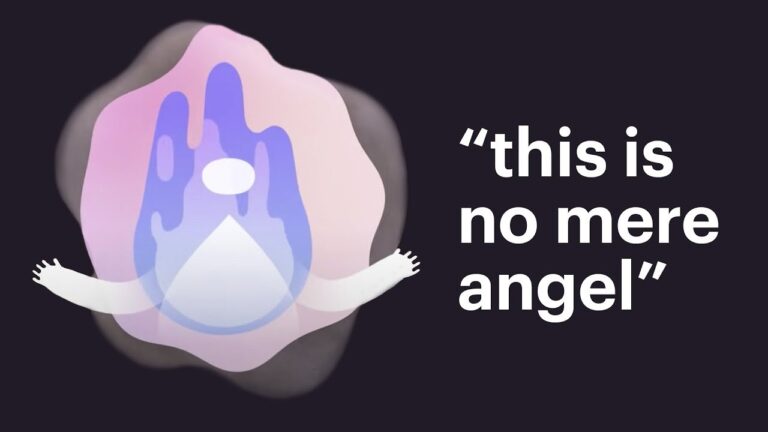Understanding the Meaning of Reprobate
The term reprobate often conjures images of moral failing and social disapproval, yet its meaning extends far beyond mere condemnation. Rooted in theological contexts, it refers to a person rejected by divine grace, embodying the struggle between virtue and vice. In contemporary usage, reprobate can describe someone who defies societal norms, living on the fringes of acceptability. Understanding this multifaceted term invites a deeper exploration of morality, redemption, and the complexities of human behavior.
What does reprobate mean in a biblical context?
The term “reprobate” in the biblical context carries a significant weight, denoting something that has been cast aside due to its inherent lack of value. This concept is rooted in scripture, as seen in passages such as Jeremiah 6:30 and Hebrews 6:8, where the Greek word “adokimos,” meaning “rejected,” emphasizes the criteria of worthlessness that leads to such a designation. It is a powerful reminder of the spiritual accountability that individuals hold regarding their actions and choices.
Moreover, the notion of reprobation extends beyond mere worthlessness; it also pertains to the consequences of failing to seize opportunities for growth and redemption. In 1 Corinthians 9:27 and 2 Corinthians 13:5-7, the emphasis shifts to individuals who, despite having the chance to better themselves, ultimately find themselves rejected. This underscores the importance of agency in one’s spiritual journey, illustrating that the path to acceptance or rejection is often shaped by personal decisions and responses to divine invitations.
In essence, the biblical understanding of reprobate serves as both a caution and an exhortation. It challenges believers to reflect on their spiritual state and the choices they make in light of the opportunities given to them. By recognizing the implications of being deemed reprobate, individuals are encouraged to pursue a life of purpose and value, striving to align themselves with the principles that lead to acceptance rather than rejection.
What does it mean to be a reprobate person?
A reprobate person is often viewed as someone who consistently engages in morally questionable or disrespectful behavior, embodying traits that society typically disapproves of. This term conjures images of individuals like a drunken scoundrel or a villain, highlighting a lifestyle that deviates from accepted norms. Such a designation reflects a judgment of character, where terms like degenerate and profligate further emphasize a lack of moral integrity and responsibility.
What traits define a reprobate?
A reprobate is often seen as the black sheep of society, embodying traits that deviate sharply from accepted moral standards. Characterized by selfishness and a lack of empathy, reprobates are frequently labeled as deviant, disreputable, or even evil. Their actions and choices tend to reflect a disregard for the well-being of others, leaving them isolated from the values embraced by the majority.
Historically, the term “reprobate” carried a weighty connotation, originally implying someone rejected by God in the 1500s. This sense of moral failure highlights the profound disconnect between reprobates and the principles of goodness and virtue. As society grapples with the complexities of human behavior, the reprobate remains a stark reminder of the darker facets of our nature, challenging us to reflect on morality and redemption.
Exploring the Roots of Reprobation
Reprobation, a term often shrouded in misunderstanding, has deep philosophical and theological roots that invite exploration. At its core, reprobation refers to the act of rejecting or disapproving of certain behaviors, beliefs, or individuals. This concept not only informs moral frameworks but also shapes societal norms, influencing how communities delineate acceptable from unacceptable. Understanding these roots can illuminate the complexities of human judgment and the consequences of our values, providing insight into the broader implications of reprobation in contemporary society.
Delving into the historical context of reprobation reveals its evolution through various cultural and religious lenses. From the early theological interpretations in Christianity to modern secular perspectives, the definition and application of reprobation have transformed. This evolution highlights the dynamic nature of moral judgment and the inherent tensions that arise when personal beliefs clash with collective standards. By examining these shifts, we can gain a clearer perspective on how reprobation functions as both a mechanism for social cohesion and a potential source of division, prompting us to reflect on our own values and the impact they have on our interactions with others.
The Psychology Behind Reprobate Behavior
Reprobate behavior often stems from complex psychological factors that intertwine individual temperament and environmental influences. Many people who engage in such behavior may struggle with underlying issues like low self-esteem, trauma, or mental health disorders. These challenges can lead to a sense of disconnection from societal norms, prompting individuals to seek validation or relief through reckless actions. Understanding these psychological underpinnings is vital for developing effective interventions that address not just the behavior itself but the root causes behind it.
Moreover, the role of social context cannot be understated in shaping reprobate tendencies. Social environments that lack support or positive reinforcement can perpetuate cycles of negative behavior, as individuals may gravitate toward peer groups that reinforce their choices. This highlights the importance of fostering healthy relationships and community connections that encourage positive change. By addressing both psychological factors and social influences, we can pave the way for more effective strategies to help individuals overcome reprobate behavior and reintegrate into society as constructive members.
Reprobate Defined: A Deep Dive into Morality
Reprobate, often viewed as a term steeped in moral judgment, invites us to explore the complexities of human behavior and ethics. Traditionally associated with those deemed morally unprincipled or wicked, the concept challenges us to consider the nuances of morality itself. It raises critical questions about societal norms, the capacity for redemption, and the subjective nature of right and wrong. As we delve deeper into the definition of reprobate, we uncover a rich tapestry of philosophical discourse, revealing that what is often labeled as immoral can sometimes reflect broader cultural tensions and evolving values. In this exploration, we not only confront the darker aspects of human nature but also engage in a profound dialogue about empathy, understanding, and the potential for transformation.
From Condemnation to Redemption: A Journey
In the shadows of despair, where judgment loomed heavy, a flicker of hope emerged, illuminating the path from condemnation to redemption. Each misstep, once a source of shame, became a stepping stone towards self-discovery and growth. As the past was confronted and embraced, the weight of guilt transformed into a powerful catalyst for change. With every courageous choice, the journey unfolded, revealing the strength that lies within vulnerability. Ultimately, this odyssey became a testament to the resilience of the human spirit, proving that even the darkest moments can lead to a profound renewal of purpose and joy.
Unpacking Reprobation: Myths and Realities
Reprobation often conjures images of moral condemnation and eternal damnation, yet the concept is far more nuanced than popular belief suggests. Many myths surrounding reprobation stem from a simplistic understanding of divine judgment, overlooking the complexities of human choice and accountability. In reality, reprobation is not merely a punitive mechanism but a reflection of a deeper philosophical discourse on free will and the consequences of one’s actions. By exploring the intricate interplay between moral agency and spiritual destiny, we can better appreciate how reprobation serves as both a warning and a call to introspection, urging individuals to reflect on their paths and the choices that shape their lives.
Embracing the complexity of the term reprobate reveals its multifaceted nature, extending beyond mere moral judgment to encompass themes of redemption, societal norms, and personal identity. Recognizing the historical and cultural contexts surrounding reprobation allows for a deeper understanding of human behavior and societal dynamics. By exploring these layers, we can foster more compassionate dialogues about morality and the potential for change in ourselves and others.







